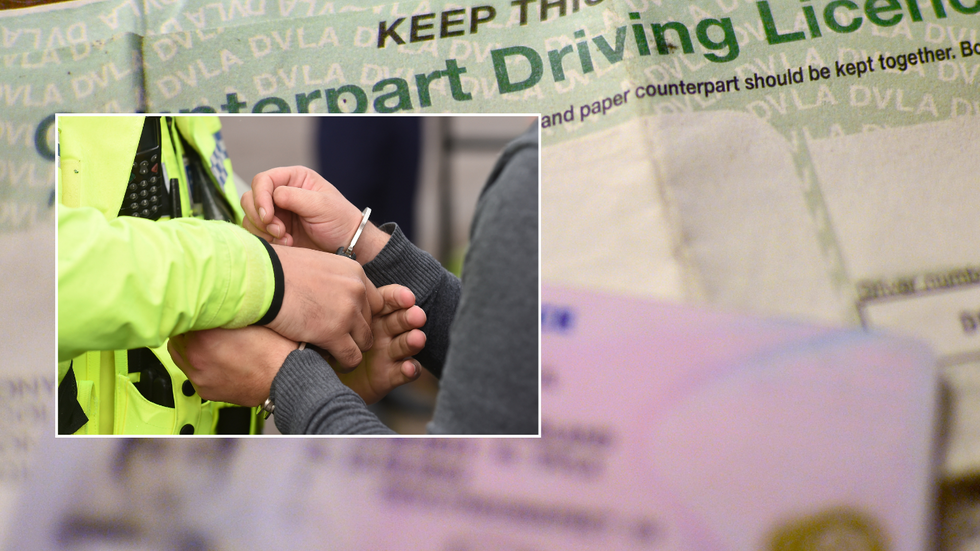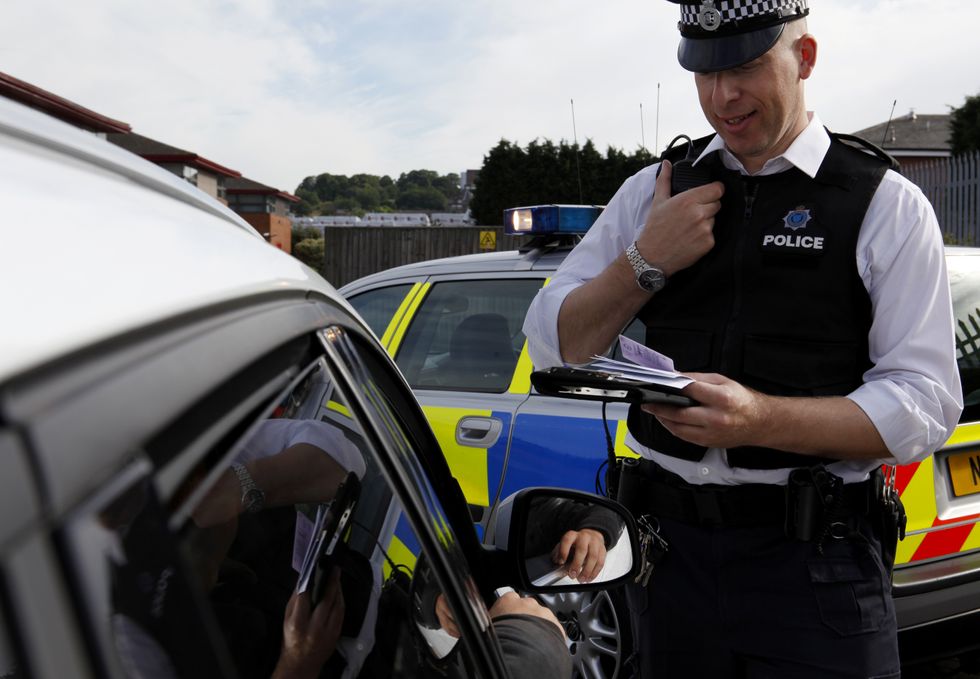WATCH: GB News discusses dangerous driving cases across the UK
GB NEWS
The Crime and Policing Bill was introduced to Parliament on Tuesday
Don't Miss
Most Read
Trending on GB News
Drivers have been warned that their personal information could be made available to police following legal action which was introduced to Parliament earlier this week.
The Crime and Policing Bill was introduced to the House of Commons by the Home Office on Tuesday, which, when passed, will change numerous rules for drivers, including stricter enforcement and penalties for rule-breaking.
One of the biggest changes will be its ability to allow police to access roughly 50 million driver records held by the DVLA, according to The Telegraph.
Currently, the DVLA is the main Government agency that holds driver information including names, addresses, date of birth, photographs, endorsements, previous convictions and any medical information which could impact driving abilities.
Do you have a story you'd like to share? Get in touch by emailingmotoring@gbnews.uk

The Crime and Policing Bill will give police access to DVLA databases
PA/GETTY
Prior to the new proposals, the police had to obtain the data through Home Office legislation, but now the changes will make it easier for officers to get adriver's information and issue penalties faster.
While the move hopes to speed up the time police can react to criminal offences on UK roads, it has been met with huge backlash, with Britons raising concerns over privacy breaches.
Madeleine Stone, the senior advocacy officer at Big Brother Watch, told the Telegraph: "It’s disturbing to see the Government is reheating the Conservatives’ abandoned plans that most threaten privacy rights, including granting all police forces access to our driving licence photos, opening the door to the creation of a massive facial recognition database.
"The Bill allows the Government to grant police officers extraordinary powers to identify and track anyone with a driving licence, at the click of a button. Not only would this be an unprecedented breach of privacy but would also put innocent citizens at risk of misidentification and injustice."
However, the Home Office has refuted the claims, stating they were "incorrect" and that the Bill did not have the power to use facial recognition.
This sentiment was echoed by a spokesperson for the DVLA, who said the data shared as part of the Bill would not include facial images of drivers.
The Bill detailed: "The Secretary of State may in accordance with this section make driver licensing information available for use by authorised persons for purposes relating to policing or law enforcement.
"This expands access for authorised persons in police and law enforcement bodies to DVLA databases."
On top of accessing driving records and personal information, the Bill also introduced tougher rules for drivers, including a five-year prison sentence if found to have signal jammers in vehicles.
The devices, which can be purchased for as little as £30, have been used in four out of every 10 car theft cases, especially with keyless vehicles.
Policing minister Dame Diana Johnson warned that the thefts have a "devastating effect" on victims, who need their vehicles to go about their everyday lives. "We are aware of the real concerns people feel with the use of these electronic devices being so prolific," she added.
The Bill also introduced new powers for police to immediately seize illegal e-scooters and e-bikes without having to issue warnings.
LATEST DEVELOPMENTS:
- Drivers demand urgent action from Labour to address dazzling LED headlights as thousands back petition
- Electric car owners warned of huge price rises in April following Ofgem ruling - 'Drive up monthly bills'
- UK high streets at risk of 'death' as spike in parking charges puts drivers off from shopping local

The Bill also introduces tougher enforcement rules for drivers
GETTYThe second reading of the Bill is expected to be announced in the upcoming weeks with it estimated to be passed through Parliament during the summer.
The Bill stated: "To make provision about powers of the police, the border force and other similar persons; to make provision about confiscation; to make provision about the police; to make provision about terrorism and national security and about international agreements relating to crime; to make provision about the criminal liability of bodies; and for connected purposes."








